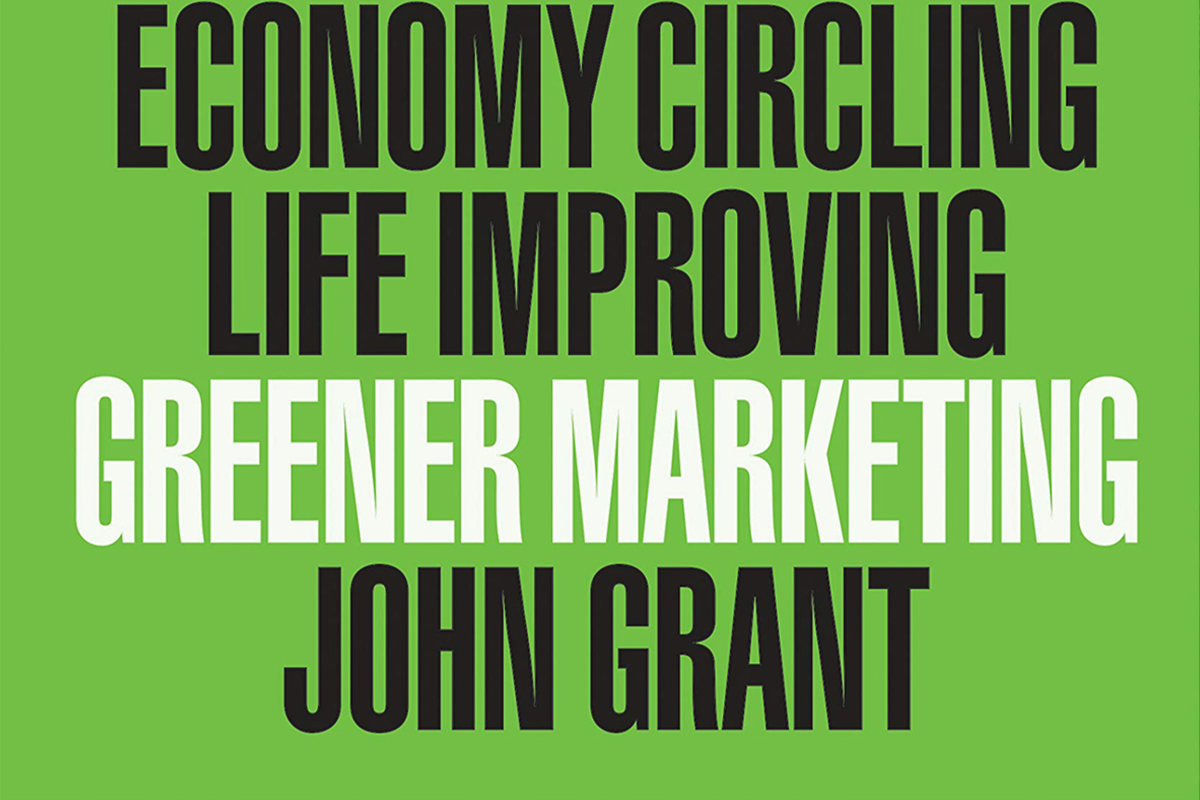Greener Marketing is a thought-provoking book, challenging current views and in many ways trying to start a revolution.
It is the sequel to Grant’s early book The Green Marketing Manifesto and reflects the evolution of his thinking and the thoughts and actions of leaders in the green field. Grant prefers the Green label rather than sustainability.
“As a word, Sustainability sounds like a cross between a prim Jane Austin title (Sense & Sensibility) and the kind of gobbledygook spoken by policy wonks (Subsidiarity)”.
Over-simplifying the book, it focuses on the necessary shift from ‘Not Bad’ to ‘Net Good’ and from a shift from ‘Should’ to ‘Must’.
He defines ‘Not Bad’ as a commitment to minimize negative impacts but says it is now only the base of the pyramid.
‘Net Good’ he defines as meaning the world is a better place for your business existing. He recognizes that everything has costs, in energy, emissions and entropy but believes that there can still be ways to bring enough ‘good’ in some parts of your business to cancel out or justify any inevitable ‘bads’ from the raw impact of your operations.
He argues that the key implication of ‘Net Good’ is the need for a social purpose and goes on to say it is this combined with integrating sustainability into your business and everything that you do that is the necessary future of brands. In his words;
“Greener marketing is defined as integrating sustainability and social purpose – building brands and businesses that are both Not Bad and Net Good.”
And he goes on to say that it is important to understand sustainability on three levels;
- Sustainability is an ethic: a guiding principle for human behaviour
- Sustainability is an emergency: we need to drop everything and attend to it
- Sustainability is ways of doing things”
The book is an interesting read, full of interesting ideas, densely packed with relevant statistics and quotes, numerous case histories and a few choice ‘soundbites’.
I really enjoyed his critique of many brands’ attempts in his section “Fifty Shades of Greenwash” and equally enjoyed some of the more positive examples from the well-known Patagonia ad “Don’t buy this jacket” to Coca-Cola’s recent take on it in Belgium which told people “Don’t buy Coca-Cola if you don’t help us recycle”.
Overall, I found it a stimulating read and would highly recommend it… even though there are still a couple of challenges that I’m not sure Grant has fully addressed.
What happens to industries that can’t shift to Net Good and what happens to the resulting unemployed workforce and potential hit to the stock market (and the pensions of millions of older people)?
Commitment to the cause’ is strongest amongst the young but many of these either are the main beneficiaries of the growth of wealth (via their parents) or currently have the most flexibility. Will change really happen on a necessary scale amongst older more settled parts of the population?
What is the best balance between relying on people to act on their conscious versus active state intervention? Grant talks about the importance of people’s choice but also argues for some intervention e.g., sugar tax.
And though Grant wrote the book before COVID-19 it is perhaps a bit unfair as a challenge but needs asking…
Will the coming recession put back the actual progress to a Greener World or will the call for a new and better future come true? (Grant pints on that commitment to sustainability fell back in the recession in 2008)
Two final questions, not for Grant, but for me are “Should I have read an e-copy? Would it have been a greener option?”



